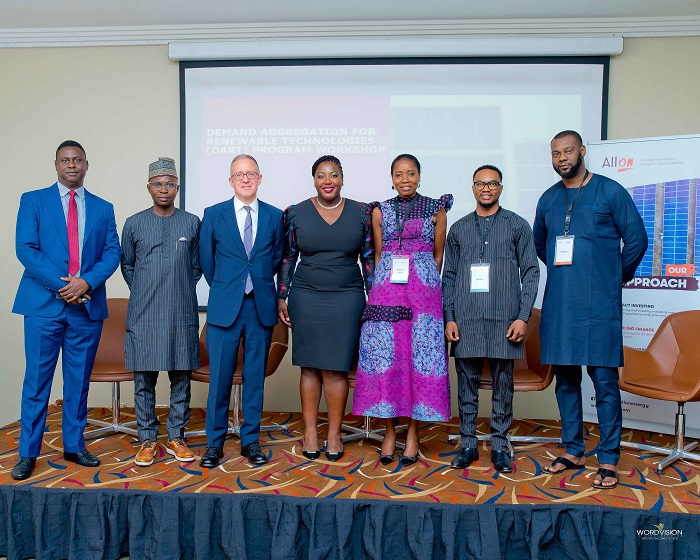Shell funded impact investment company, All On, through its Demand Aggregation for Renewable Technologies (DART) program, has announced its commitment of $11 million to support 25 mini-grid projects in Nigeria.
This was made known at an inaugural DART workshop with off-grid developers, commercial banks, domestic investors, and other critical stakeholders to discuss strategies to unlock local currency commercial funding for the off-grid renewable energy sector in Nigeria. The workshop, a closed-door event held at the Four Point by Sheraton Hotel, Lagos on Wednesday, June 7, 2023.
During her remarks, Caroline Eboumbou, CEO of All On, highlighted the remarkable success achieved through the DART program since its launch in 2021. She stated that the program has committed a total of $11 million to support 25 mini-grid projects across the country, over 2,700 solar energy systems to be funded, and 12 successful applications thus far.
Efforts have been made to increase the funding of the facility by $15 million, in collaboration with its partner, Global Energy for People and Planet (GEAPP). These efforts aim to address the local financing bottlenecks experienced by developers and ensure that affordable, high-quality solar products reach the communities most in need in Nigeria.
“While celebrating these achievements, we also acknowledge that challenges have arisen along the way.
In collaboration with our partners at GEAPP, we are actively working to address these challenges. We have made significant progress in simplifying the application process and reducing the timelines from application to disbursement. Additionally, we have expanded the eligibility scope to include Solar Energy Systems, Standalone Systems for Productive Use (SSPU), and Commercial and Industrial (C&I) developers,” she said.
In November 2021, All On, in partnership with GEAPP set up the DART program, a $10 million financing facility designed to accelerate the growth of the renewable energy sector in Nigeria and beyond. It achieves this through a combination of demand pooling, aggregated purchasing of solar equipment, access to affordable finance, and streamlined logistics processes. By leveraging economies of scale, the DART program aims to reduce costs for solar companies and end users while promoting the adoption of renewable energy.
Explaining why DART program is crucial for the renewable energy ecosystem in Nigeria, “firstly, it allows small-scale developers to benefit from group purchasing, resulting in lower unit costs for solar equipment.
Secondly, it addresses the issue of foreign exchange availability, alleviating the FX bottlenecks experienced by developers.”
“Moreover, the program offers additional benefits such as a streamlined procurement process, expedited deployment of off-grid assets, access to affordable financing for developers, and the potential for result based subsidies and other commercial financing options.” – said Caroline Eboumbou, All On CEO.
The workshop encompassed a series of presentations addressing key aspects of Nigeria’s macroeconomic climate and its impact on the renewable energy industry within the country. Topics covered included the sector’s roadmap, challenges faced, and a plenary session that focused on strategies for unlocking local commercial financing. The session brought together a diverse range of stakeholders, including commercial lenders, key stakeholders and off-grid developers.
Moderated by Afolabi Akinrogunde, All On’s Investment Manager, the panel featured esteemed participants such as Olu Aruike, Country Director, Husk Power Nigeria; Terkuma Ivande, COO, Prado Power Nigeria; Dele Faseemo, Group Head of Energy, Sterling Bank; Phil Southwell, Partner, Chapel Hill Denham; and Dolapo Kukoyi, Managing Partner, Detail Solicitors.
Others present at the workshop were, Corey Karaka, Investment Director, Global Energy Alliance for People and Planet; Victor Okinda, DART Program Lead, Global Energy Alliance for People and Planet and Damilola Asaleye, Vice President, Renewable Energy Association of Nigeria.


Comment here